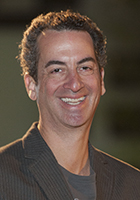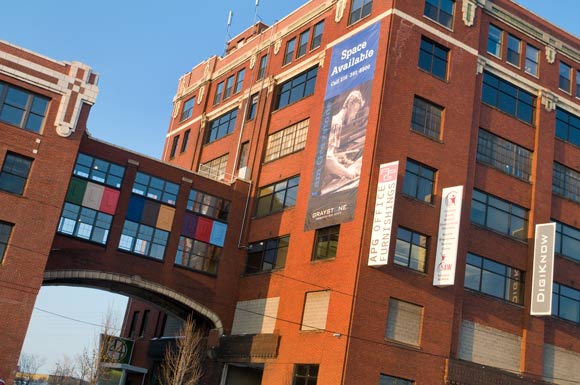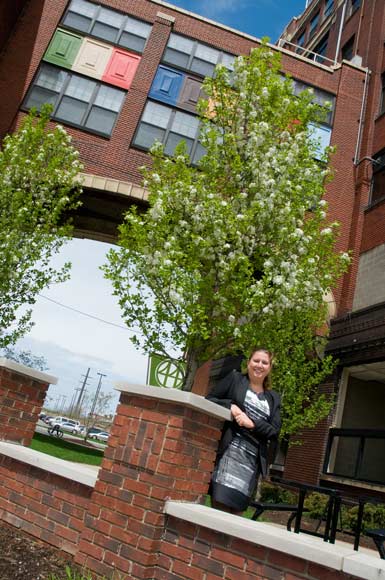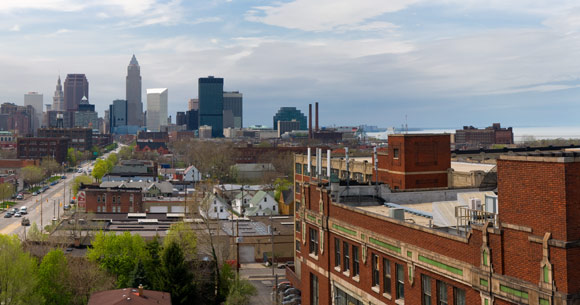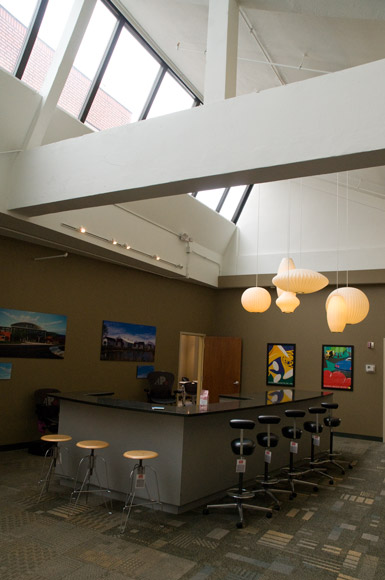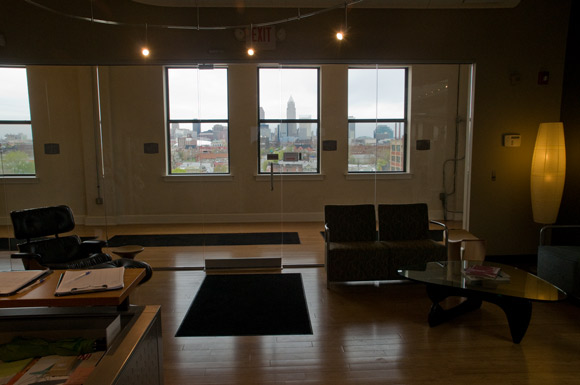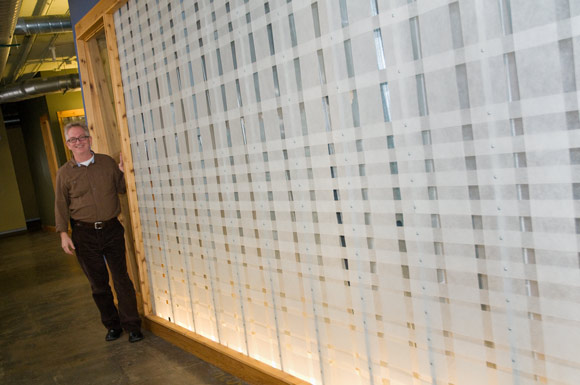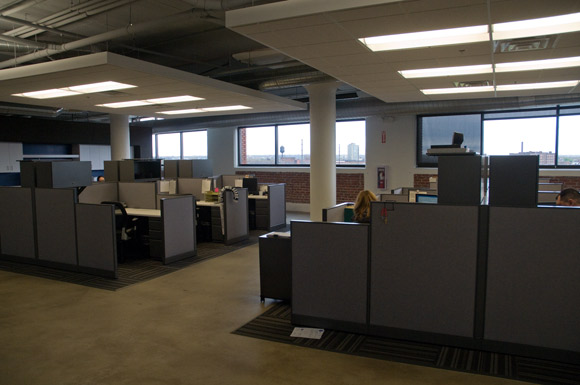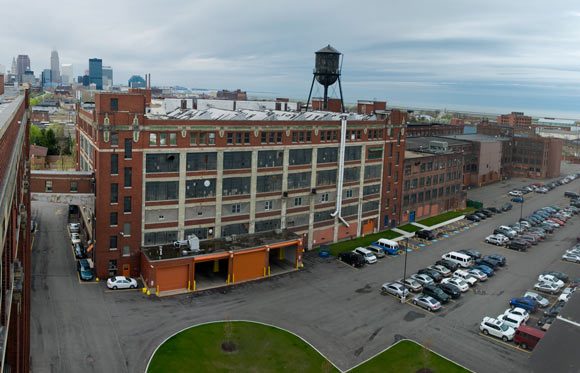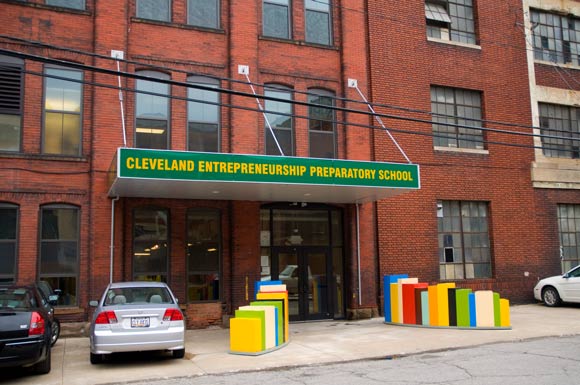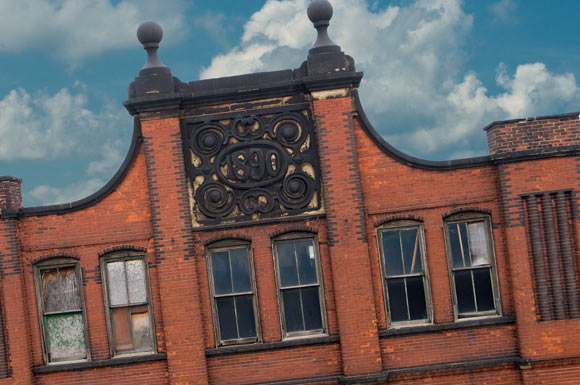it takes a village: a redevelopment story for the ages
When Tyler Elevator picked up and moved its facilities to the suburbs, the company left behind over one million square feet of vacant warehouse space. Cobbled together over a three-decade span, Tyler complex was a labyrinth of some two-dozen brick buildings, each one sporting the unique styles, layouts and building materials of their day.
Needless to say, the property possessed more than its share of challenges when Graystone Properties acquired it some years back.
Since that time, however, Tyler has been reborn as a thriving entrepreneurial district -- a bona fide urban village on the fringes of downtown. Each day 420 employees and 350 students come to learn and work at this village's two schools and 50-odd businesses. Toss in a coffee shop, peaceful green spaces, and a truly collaborative spirit and you've got one of the most unique redevelopment projects going.
At one million square feet spread across 10 acres, Tyler Village is also one of the largest redevelopment projects taking place in Cleveland. Since drafting its master plan for the property, located at East 36th and Superior, Graystone has invested $11 million into things like new heating, air conditioning and energy-efficient windows. Systematic demolition has pared down leasable square footage to around 700,000 while boosting both green and parking spaces.
Graystone CEO Bethany Friedlander says that while plans originally called for the construction of market-rate condos, Tyler Village has evolved into a one-of-a-kind anthology of entrepreneurial firms. Among the various and sundry tenants is a small brewery, vinyl record-pressing plant, recording studio, biotech lab, high-end furniture showroom, and numerous media companies.
Like all great plans, this one evolved organically -- and with the aid of more than a little luck.
"We like to say that we don't choose our tenants; our tenants choose us," says Friedlander.
One of the first new tenants to choose Tyler was DigiKnow, a digital marketing firm that was looking to relocate from Beachwood to Cleveland. After exhausting his searches elsewhere, president King Hill ultimately found everything he was looking for at rough-and-ready Tyler Village.
In addition to a central location, free and easy parking, and a bigger footprint, Hill says he was looking for a place that he could truly customize. He ended up leasing 20,000 square feet -- an entire floor – for his 55-employee firm.
"In this big, old factory building I immediately saw the creative potential for what we could do in the space," says Hill. "There is something unique to Tyler. It is flexible in so many ways that it's more like a blank canvas. You can get really creative."
That flexibility, notes Friedlander, is one of the property's biggest assets. With numerous buildings, units, and layouts available, tenants of all types and stripes can find or fashion the suite of their dreams.
"Our spaces are as different as different can be," Friedlander explains. "But we aren't for everybody. People who choose Tyler tend to have a very clear vision of how they want their space to look or work. They want to work with a landlord who gives them the freedom to build what they want. Sometimes success is just getting out of people's way."
Custom is king when dealing with tenets as diverse as those at Tyler. What works for a small-batch brewer most likely won't suit a charter middle school. "Schools can't function the same way as a loft-style furniture warehouse or a biotech lab," notes Friedlander.
Not that Tyler is without its quirks. The complex is so large and lawless that visitors (heck, even tenants) often get lost. Its sheer size means that the punch list grows longer – not shorter – with each passing day. And irony notwithstanding, the 100-year-old Tyler elevators often go on the fritz, requiring a frantic call to one of the few remaining souls on the planet who can mend them.
But shared sacrifice often results in newfound kinship. And what has developed at Tyler Village is an unlikely community of like-minded folks.
Despite the fact that it is located 40 blocks east of Public Square, and comprised of little more than bricks, steel, concrete and glass, Tyler feels like its own little neighborhood. Employees grab their morning coffee from Pulley's Café, which is located in donated space and staffed by employees from another tenant, Solutions at Work. When one company at long last secured a recycling Dumpster from the city, he chose to locate it not at his loading dock but in a common area. New tenants make a point of buying their office furniture not online, but at APG, the on-site showroom.
"Traditional office spaces work best when people leave each other alone," says Friedlander. "People who want to be part of a larger community often conduct their business that way."
DigiKnow's King Hill agrees that there is a correlation between where people choose to work and how they run their businesses.
"You look at the diversity of companies here," Hill points out. "I think these are companies that are led by people who don't want to be boxed in by a cubicle, or by a precast concept of what their business should look like. These are people looking for a way to make their own stamp."
And as more and more entrepreneurs look to break out of the cubicle, both Cleveland and Tyler Village stand to benefit.
"There is a trend reversal," Hill adds. "There is a movement back to the core of the city and Tyler Village is well suited for that."
